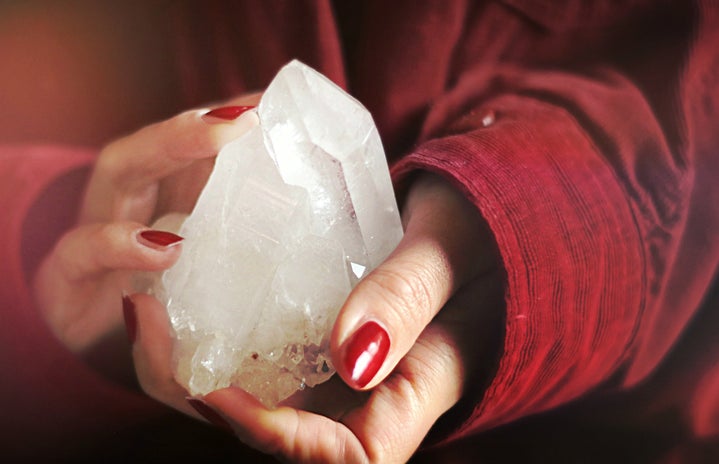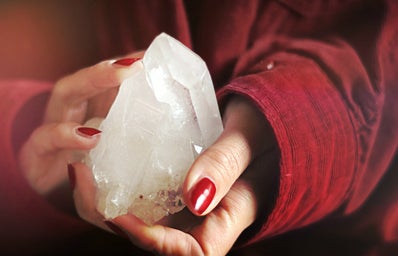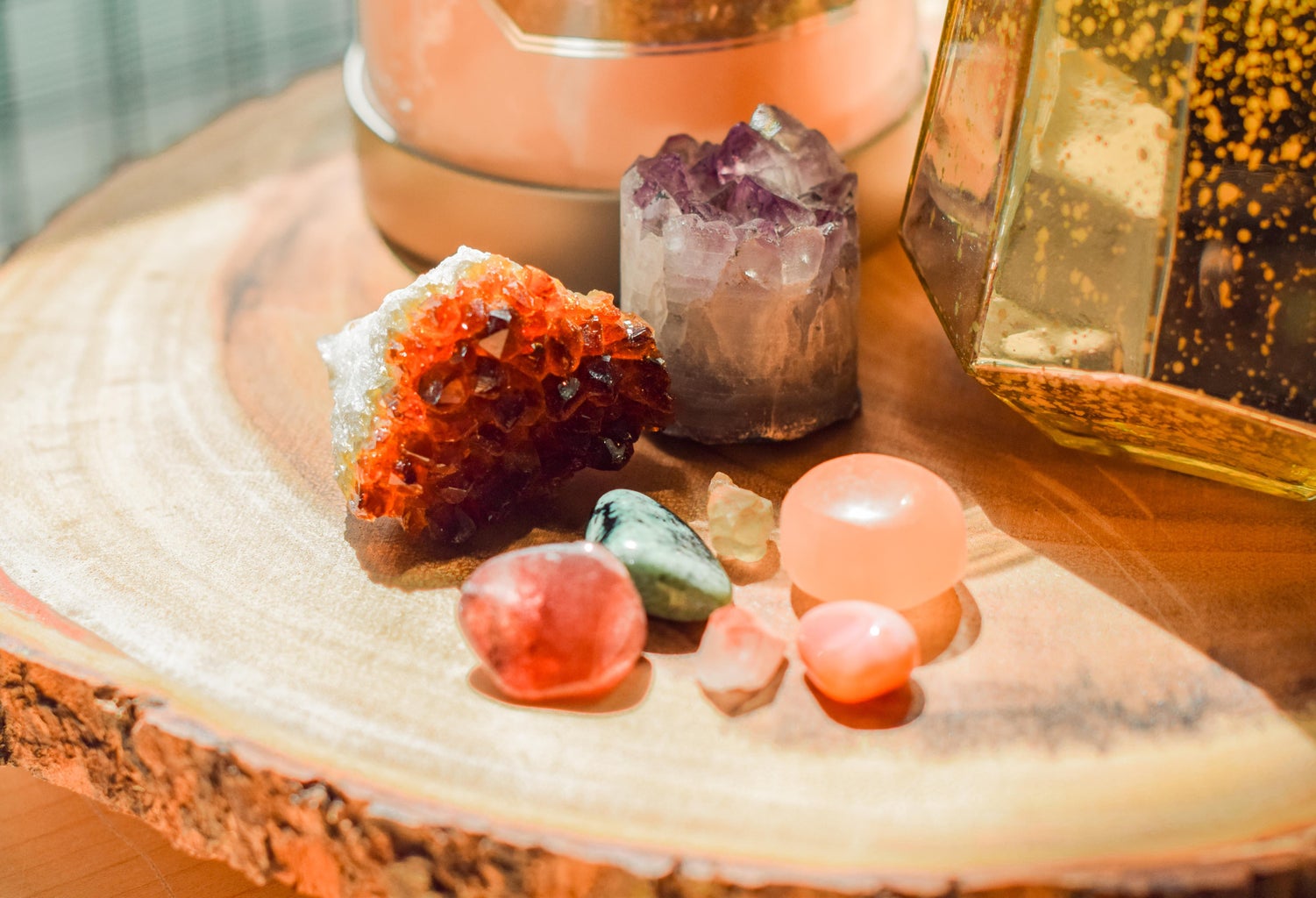If you’re seeing astrology, sparkling crystals and swinging pendulums on your TikTok FYP, this is your sign to keep reading to uncover the common misconceptions you might have of the New Age movement!
As the practice continues its blaze globally, there have been severe misconceptions being spread online by profit-hungry business owners and uninformed users. This is especially dangerous not just physically, to oneself, but socially, as misusing New Age tools can be considered appropriation of ancient cultures.
Here’s a little introduction on how this often misunderstood practise came about and how to be part of it safely.
Click on these links to skip to each part:
New Age practices and are they proven?
- Astrology
- Crystals
- Divination (tarot, oracle cards and pendulums)
Is the New Age movement for me?
What is the New Age movement?
Born at the start of the Age of Enlightenment in the 18th century, the New Age is the intersection between the then-emerging scientific discoveries and esotericism, although it only started becoming popular during the ‘60s, with the rise of hippie or counterculture. Again, there has been another surge in the popularity of New Age practices due to increased connectivity and influence on platforms like TikTok.
It is an alternative, relatively new religion (hence the name “New Age”), seeking to encourage freedom of self-expression and transformation of one’s life by understanding yourself better. It combines Eastern and Western traditions with self-motivating philosophy, resulting in a practice that allows users to feel spiritually uplifted and be more trusting towards life.
This practice focuses on the self, mindfulness and nature. While you often see believers with large quantities of ‘tools’ like crystals, herbs and incense, it is a common misconception that you have to must those in order to practice the religion. It can actually be done purely via your intentions in your everyday life. For example, a very common ritual is morning affirmations, which supposedly help to rewire you to be more optimistic and positive for the day ahead.
The New Age movement is also often confused with Paganism, one of the oldest forms of religion to survive to this day (common practices include burning herbs like sage for cleansing purposes). However, on the contrary, many Pagans criticize New Age practices for being progressive and expensive. The roots of Paganism stretch back for millennia and only started fading around the 5th century due to the mass conversion to Christianity, whilst the New Age movement is comparatively much younger. In contrast to the New Age movement, Paganism primarily celebrates and gives thanks to nature instead of the self.
What are the New Age practices and how accurate are they?
With this movement comes a few practices adopted from other cultures, and can sound literally out of this world to many. Here are just some of the common customs New Age believers practice to seek peace and advice from.
Astrology
This probably isn’t new to you, as you might have seen this splashed across your Instagram, Twitter or TikTok feeds. But did you know you have more than just one sign?
The sign that you reply to your friends with is known as your Sun sign, a manifestation of your basic self. You also have Moon (inner self), Mercury (communication) and Venus (love) aspects that you can easily search up using a calculator. These signs combine to show your true, multi-faceted self.
So, should you start asking your partner or every living, breathing thing next to you for their birth timing? According to science journals, there is very little scientific proof that astrology is an accurate predictor of personality traits, so you may finally stop dreading the fact that they have a Gemini moon!
Side note: If you don’t relate to your astrology sign, check the Vedic version! I’m a Taurus by Western astrology calculations, but most certainly do not identify as one.
Crystals
Locally at least, the crystal business seems to be an emerging avenue for side hustles. Ethical and sustainability issues aside, we seem to be increasingly obsessed with… shiny rocks. Crystals are a popular practice in the movement as well, supposedly holding properties to boost certain areas of our life. For example, malachite to bring essential and necessary transformation, the TikTok famous carnelian for creativity and confidence, and black tourmaline for grounding purposes.
If you’re skeptical about the power of crystals, I feel you, and so do many others, especially because they can be exceedingly expensive. A form of alternative medicine (like Reiki and chakra healing), research conducted by the University of London suggests that the power you feel from crystals are most likely placebo. The experiment was done by giving participants either a piece of clear quartz, or a fake version made of ordinary glass, and they produced similar results, implying that the physical ‘tingling’ that some feel is because of the “power of suggestion” rather than because of the crystal itself.
But hey, if it works for you, it works, right?
If you do plan to try this out for yourself, however, we advise you to do your due research on each seller to avoid getting fake crystals (usually made of glass) or unethically sourced ones.
Divination
Veering into the ‘darker’ New Age practices, forms of divination such as tarot and oracle cards, and pendulums can foretell your future or help you make the ‘correct’ decision. It relies on the divine to guide cards out or pendulums to offer advice for any situation under the sun. Divination as a practice can scare off many as it requires working with a ‘force’ most of us don’t know much about, and we don’t recommend it if you didn’t learn it professionally!
There are many proponents of tarot, such as Christian Dior, who used it to seek clarity about his sister that disappeared during the Second World War, and subsequently had his cards read before each fashion show. In a more contemporary context, singers like Jhené Aiko also seek advice from tarot cards to start her day.
It’s understandable that there is an increasing number of people turning to the metaphysical (religious or spiritual) in these hard times for guidance and advice, but there is, again, no complete scientific evidence that tarot produces truly accurate results.
As a result, exercise caution when it comes to tarot readings if you choose to pursue it; ensure that the reading truly resonates with you before you proceed with the guidance, and take the advice with a pinch of salt if you’re unsure.
So, is the New Age movement for me?
There are clashing beliefs between the New Age and many older religions. Their unorthodox, lesser observed rituals might scare away beginners, as does their seemingly unending sense of optimism that everything works out in divine timing. However, it’s important to note that this ‘strange’ practice places huge emphasis on total belief in the process, sparking discussion that this religion operates on placebo more than anything else.
While, in all honesty, there is no concrete proof behind these practices, you might find the New Age especially appealing if you’re more open-minded and being called to it. It’s also a ‘free and easy’ religion, where there is no set timing for practices, and ways to do it.
On the other hand, certain individuals (especially the religious) might find New Age practices rather self-serving and even selfish in extreme cases, as New Age preaches being your best self, over focusing on God or other aspects in life. And that’s not wrong, either.
Ultimately, spiritual and religious practices are extremely subjective, and almost always depend on what stage of life we are at and what values are the most important to us. Whether or not New Age beliefs hold true to your life, it’s essential that we inform ourselves accurately and find the right practices (or none at all) to suit the path we’re on.




